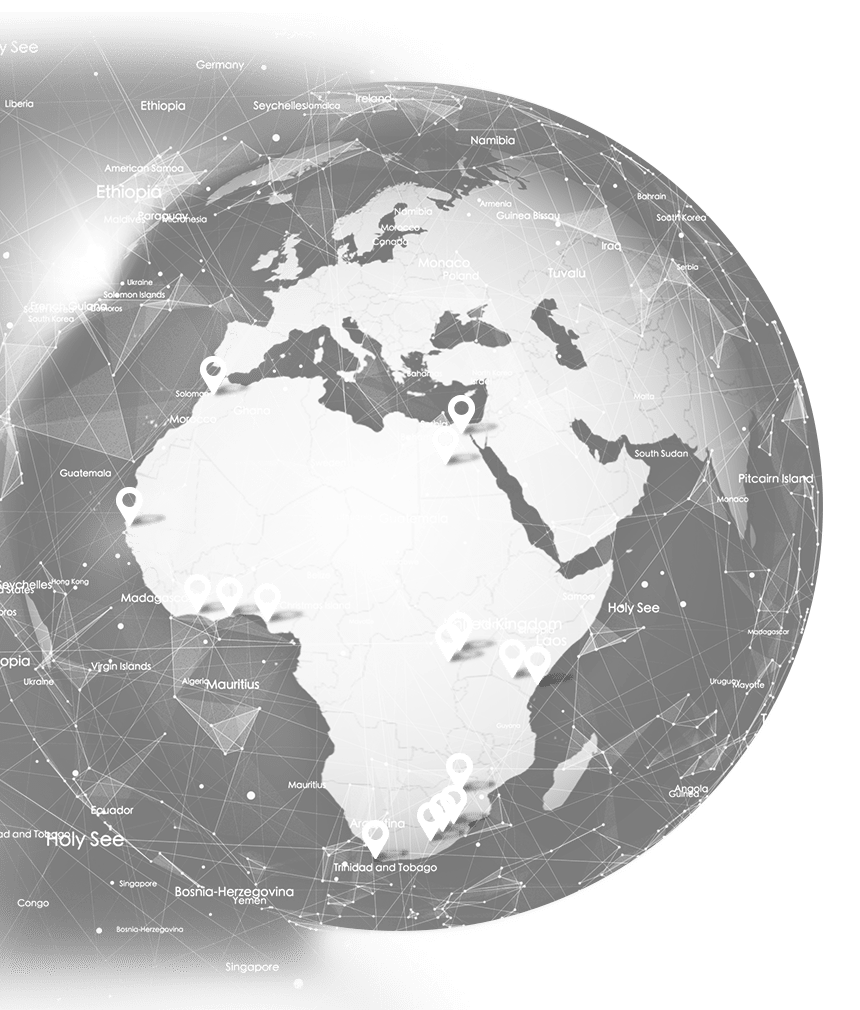Kathy Gibson is at AfricaCom in Cape Town – Africa Data Centres has moved quickly to position itself as a pan-African data centre leader with a solid presence on the continent and plans underway to expand further.
When CEO Stephane Duproz joined Africa Data Centres 18 months ago, he realised that the market was wide open and that the company was in a perfect position to set itself up as the leader in data centre installations.
Parent company Liquid Telecom has a long history as a pan-African telecommunications provider, and through telco acquisitions of Kenya Data Centres (KDC) and Neotel, found itself as the owner of fully-fledged data centres in three key locations: Johannesburg, Cape Town and Nairobi.
“This is not a business Liquid Telecoms was in,” he tells IT-Online. “However, they had the data centres and decided to take the opportunity to grow that particular business.”
Duproz was born and raised in Madagascar and has spent much of his life in Africa, so when he got the call about the Africa Data Centres job he didn’t hesitate. “For me, this was an opportunity of doing what I know on my continent – I couldn’t resist it.”
He has been involved in the data centre business for 20 years, 14 of those years as MD of Europe’s leading data centre company, so he brought a wealth of experience with him.
The job description was to manage the three data centres in Johannesburg, Cape Town and Nairobi, but Duproz quickly realised there could be a bigger story on the continent.
The first step was to grow the team with top-class talent from around the world, and then to position the data centres among the world’s leading operations.
As high-value data centres, the facilities are carrier-neutral so they offer rich connectivity, which attracts content and helps to create a strong ecosystem.
“With an ecosystem, you are creating digital hubs that are key actors in the digital ecosystem,” Duproz explains. “The data centre creates the ecosystem both as the foundation and as a crossroads or marketplace where people can meet.
“It is our job to ensure the availability of systems, but the value we create is in helping customers to work with each other.”
With the three core data centres optimised, Africa Data Centres turned its ambitions to the rest of the continent. “We have developed a plan that includes pan-Africa,” Duproz says.
“Currently in Africa, there are a few telcos that have data centres in a few countries and they are not carrier-neutral. On the other side, in some countries, there are good data centres that are carrier-neutral. But for some reason, you don’t have one company doing both.
“We are the only one, and that is going to generate huge value for us and our customers.”
The key to Africa Data Centres’ strategy is to interconnect data centres across the continent, which will offer huge value for international customers.
“When you talk to large international companies coming to Africa, they are extremely interested in getting the same contract, value and service across the continent.
“When these companies have data centre capacity needs in Europe they know who to ask – in Africa they don’t.
“But now they are getting to know us.”
It hasn’t been a quick or easy road by any means, Duproz adds. Africa Data Centres has tripled the size of its South African capacity in the last year and doubled the size of the Kenyan operation.
It is currently building capacity in Lagos and Mombassa as well and plans to have a presence in eight locations within the next few months.
In locations where customers want to have capacity but Africa Data Centres doesn’t yet have a data centre, it is partnering with locally-based organisations so it can give customers a single contract and SLA across the continent.
“We have a number of customers that are extremely interesting in our vision of a pan-African operator,” Duproz says.
Without disclosing the actual investment that Africa Data Centres is making in its pan-African build, Duproz says that it is in the “several hundred million dollars – significant hundreds of millions”.
Although international customers are attractive, Duproz stresses that it is equally important to be able to attract local organisations to ADC’s data centres.
“Local customers are a big part of the story for the future.”
He believes Africa Data Centres has some compelling attractions for customers. “We are a fully African organisation, so when we make money it stays in Africa.
“Plus, our strategy is not to be acquired: we have a long-term almost industrial project and are in it for the long-term.
“Our first philosophical mission in being in business is to bring African data back to Africa. Currently, more than 90% of African data is not in Africa, which is quite shocking.
“Part of our mission is to create a digital ecosystem in Africa so that the continent has the same capacity as the rest of the world.”
Duproz scotches the concept of Africa being short of skills, and Africa Data Centres is actively involved in training up talented people to join the growing industry.
The company’s strategy is paying off, and it is signing up large international companies already.
At AfricaCom this week, Africa Data Centres announced that China Telecom Global (CTG), one of the world’s largest providers of integrated telecommunication services, has deployed a China Telecom Point of Presence (POP) at it Johannesburg data centre.
Through the POP, with its current design capacity of 14MW, China Telecom will offer Africa Data Centres’ customers extended global connectivity and Internet services, as well as Internet peering through the Johannesburg Internet Exchange (JINX), also hosted at the Johannesburg facility in Midrand.
Changhai Liu, MD of China Telecom (Africa and Middle East), comments: “Africa is without a doubt one of the fastest-growing markets in the world. With over 50 countries in the region, Africa is an incredibly important market for China Telecom, and we hope this collaboration will help both us and Africa Data Centres better serve our customers in the region, as well as identify new business opportunities on the continent.”





